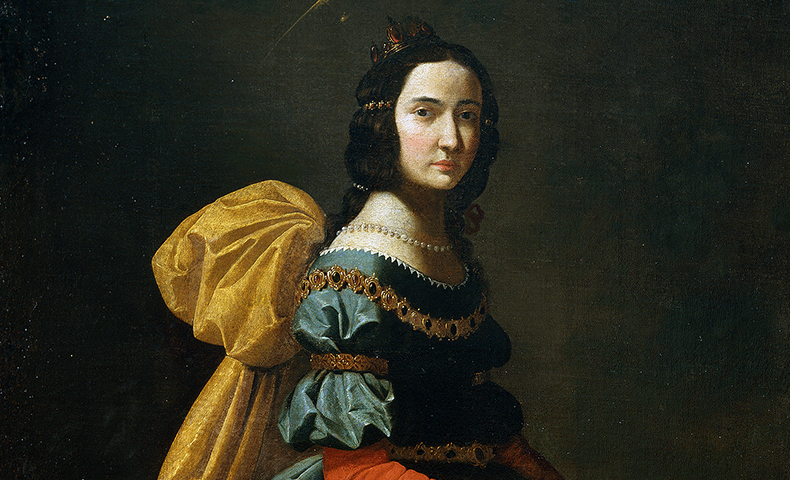Saint Elizabeth of Portugal, Saint of the day for July 4th

(1271 - July 4, 1336)
The story of Saint Elizabeth of Portugal
Elizabeth is usually depicted in royal dress with a dove or an olive branch. At his birth in 1271, his father Pedro III, future king of Aragon, reconciled himself with his father Giacomo, the reigning monarch. This turned out to be a harbinger of things to come. Under the healthy influences surrounding his early years, he quickly learned self-discipline and acquired a taste for spirituality.
Fortunately prepared, Elizabeth was able to face the challenge when at 12 she was married to Denis, king of Portugal. She was able to establish by herself a model of life conducive to the growth of God's love, not only through her exercises of piety, including daily Mass, but also through her exercise of charity, thanks to which she was in able to make friends and help pilgrims, strangers, the sick, the poor - in a word, all those whose need has come to his attention. At the same time, she remained devoted to her husband, whose unfaithfulness to her was a scandal to the kingdom.
Denis was also the subject of many of his peace efforts. Elizabeth long sought peace for him with God, and was eventually rewarded when she gave up her sinful life. He repeatedly sought and made peace between the king and their rebellious son Alfonso, who he thought had passed to favor the king's illegitimate children. He acted as a peacemaker in the struggle between Ferdinand, king of Aragon, and his cousin James, who claimed the crown. And finally from Coimbra, where she had retired as a Franciscan tertiary in the monastery of the Poor Clares after the death of her husband, Elizabeth left and was able to achieve lasting peace between her son Alfonso, now king of Portugal, and her son-in-law, the king of Castile.
Reflection
Peace promotion work is far from a calm and calm effort. It takes a clear mind, a stable spirit and a brave soul to intervene between people whose emotions are so aroused that they are ready to destroy each other. This is all the more true for a woman in the early XNUMXth century. But Elizabeth had a deep and sincere love and sympathy for humanity, an almost total lack of concern for herself and a constant trust in God. These were the tools of her success.